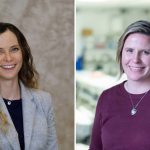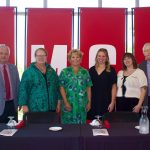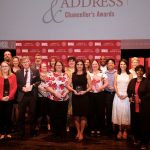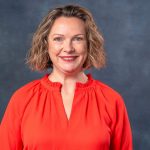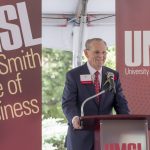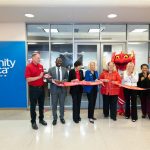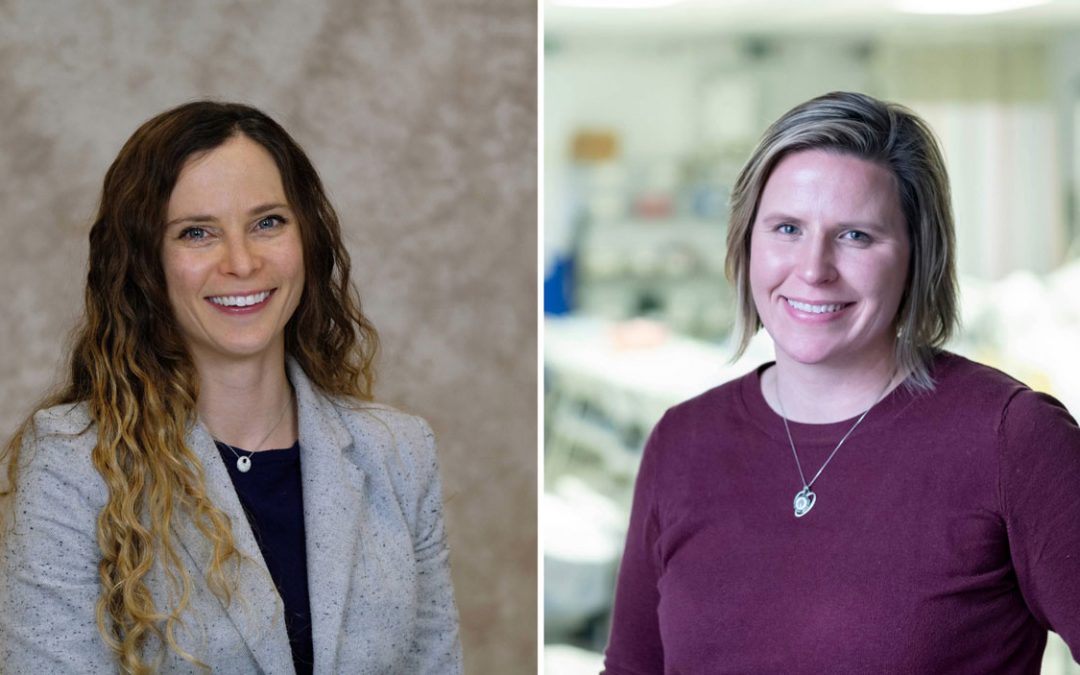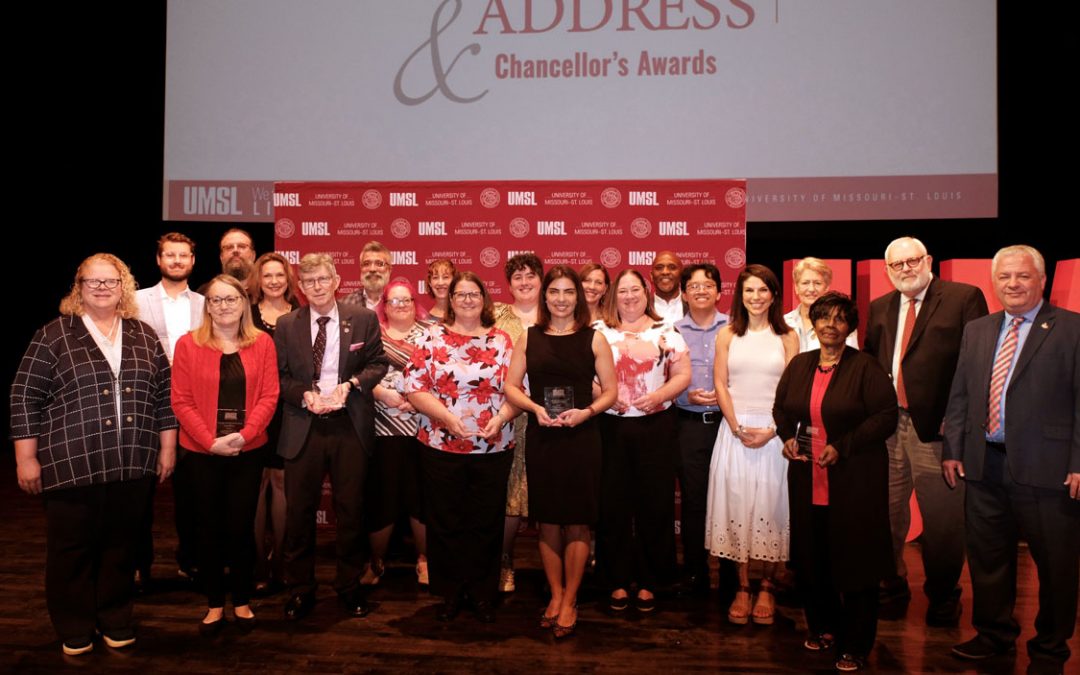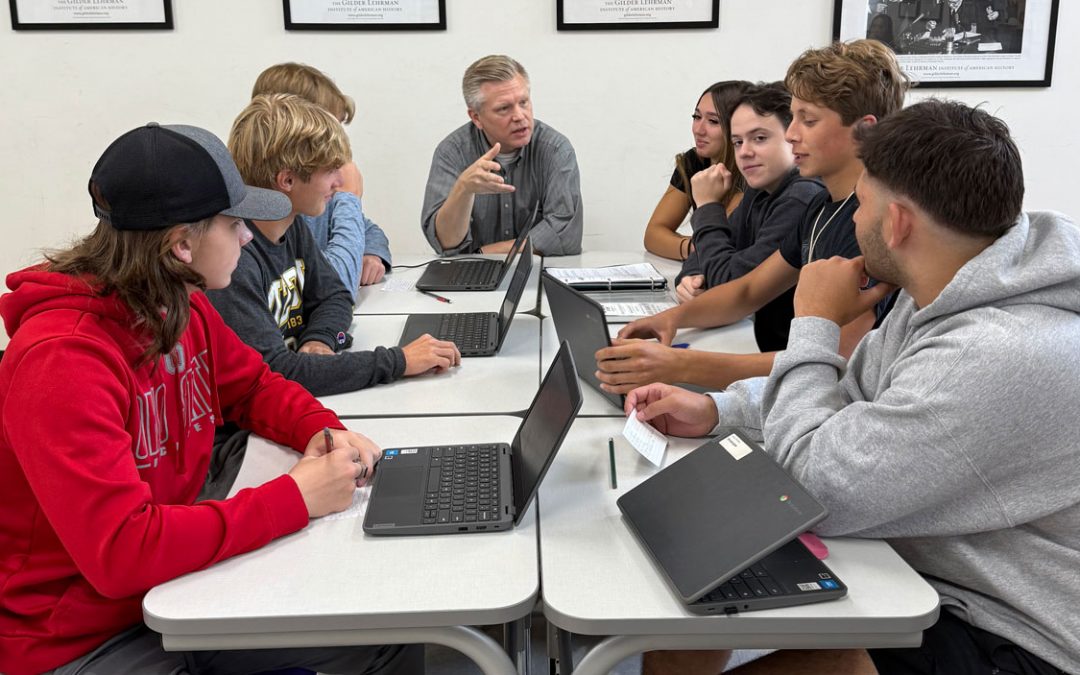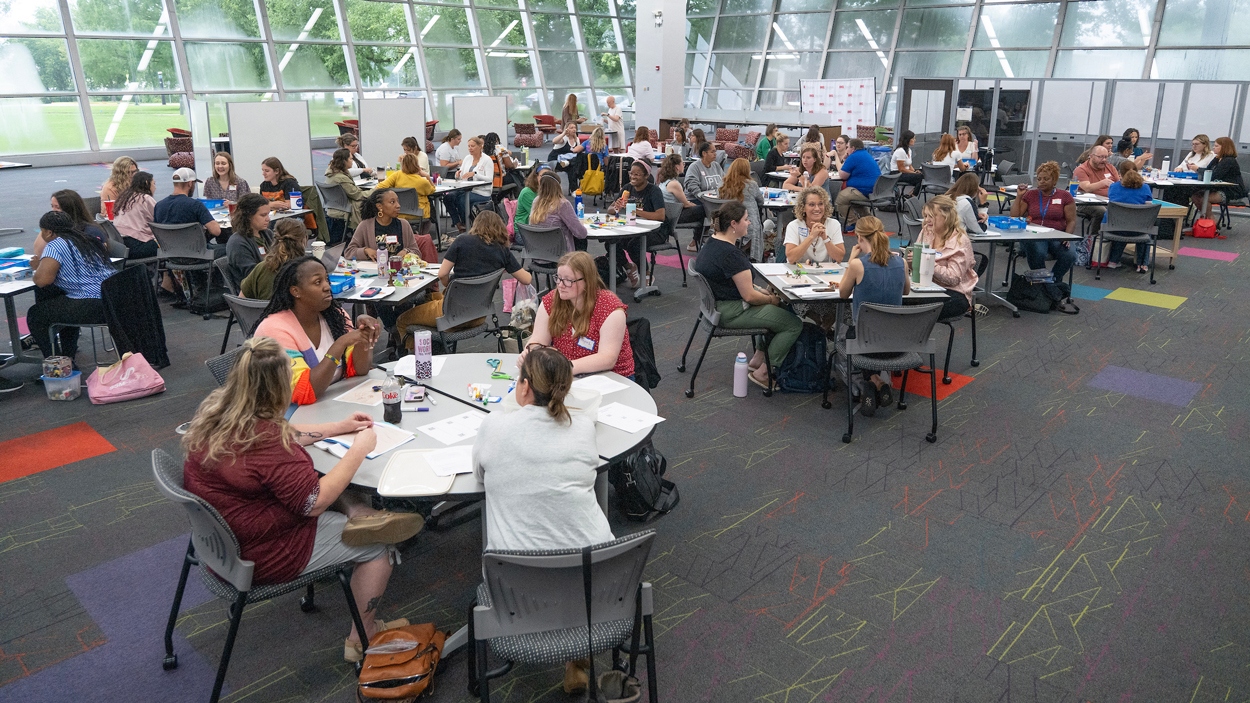
Educators, counselors and therapists from across the St. Louis region work during a 2023 play therapy conference hosted by the College of Education and Counseling and Social Advocacy Center. The conference is one of many ways UMSL’s program has worked to build relationships with surrounding communities. (Photo by Derik Holtmann)
During her time at the University of Missouri–St. Louis, Zori A. Paul distinguished herself as an exceptional counselor and scholar. So, it was only fitting that Paul had the honor of presenting her alma mater with two prestigious awards at the North Central Association for Counselor Education and Supervision Conference on Oct. 18.
The university’s counseling master’s program won the regional NCACES Innovative Counselor Education Program Award and the national ACES Robert Frank Outstanding Master’s Counselor Education Program Award.
“The University of Missouri–St. Louis master’s level counselor education program demonstrates innovation and excellence through their emphasis on social justice demonstrated in multiple ways, including in their coursework, and through their Counseling and Social Advocacy Center, where students complete a portion of their clinical experiences,” Paul told the crowd during an awards ceremony in Rosemont, Illinois.
Assistant Professor So Rin Kim said she and her colleagues were amidst a monthly program meeting at the beginning of the fall semester when they learned the MEd program won the NCACES award. The good news quickly energized the room.
“All of our faculty were very excited to hear the news,” Kim said.
The NCACES is a regional branch of the Association for Counselor Education and Supervision, the premier professional organization dedicated to quality education and supervision of counselors in all work settings.
Kim, who also serves as the associate chair of the Department of Education Sciences and Professional Programs in the College of Education, said the program’s reaccreditation process with the Council for Accreditation of Counseling and Related Educational Programs (CACREP) provided an opportunity for counseling faculty to reflect on the work they’ve been doing and the program’s positive outcomes.
That contemplation period inspired Kim to first apply for the regional award, and after going through the work to submit one application, she decided to apply for the national ACES award as well.
“We were having everything ready for the re-accreditation, and we’re waiting for the site visit,” Kim recalled. “But as we gathered everything, I just had a moment – we are a really good program. It seems like not just faculty, but all stakeholders, including current students, alumni, clinical supervisors, adjunct instructors, advisory board members, they’re committed to program excellence as well. I felt like if there is an official way for us to recognize and celebrate, this would be a great opportunity. Part of me was really excited, and honestly, another part of me is not that surprised given the amount of commitment that I see from many different layers in the program.”
There’s plenty of recent evidence to support the program’s dual wins.
In 2023, the federal government’s Mental Health Service Professional Demonstration program awarded Associate Professor Emily Brown and Associate Professor Mary Edwin a $3.1 million grant to implement an innovative program to place UMSL counseling interns in 13 high-need schools. UMSL’s Play Therapy Institute, housed in the Counseling and Social Advocacy Center, was also awarded $442,000 in funding to expand its services.
The counseling program’s students have also distinguished themselves. Paul and Monica Phelps-Pineda both won the National Board for Certified Counselors Minority Fellowship Award for their respective PhD research. Additionally, Nikki Hurless won the 2020-21 ACES Graduate Student Scholarship, and Rattanakorn “Gon” Ratanashevorn recently earned the prestigious Ralph F. Berdie Memorial Research Award.
Kim believes one thing that sets UMSL’s program apart is a commitment to its values, particularly its emphasis on counseling that respects various backgrounds and perspectives.
“It takes creativity to actually take that into action,” she said. “That’s why I’m really proud of our program’s course offerings focused on counseling clients from a wide range of backgrounds. All of our students learn about ways to provide counseling for clients with different lived experiences.”
The UMSL Counseling master’s program includes two degrees, clinical mental health counseling and school counseling, and numerous graduate certificates.
The program’s rigorous standards also differentiate it. UMSL’s master’s and doctoral counseling programs are CACREP accredited, which is the gold standard for counseling education. UMSL has the only CACREP-accredited school counseling program in the St. Louis region and the only CACREP-accredited doctoral counselor education program in the state of Missouri.
“There are probably more than 300 standards to meet, from what to teach in class to how to evaluate student outcomes, to how do we provide practical and clinical training to students?” Kim said. “So, I can say CACREP requires high-quality standards to train counselors to become licensed after graduation.”
She added that graduating from a CACREP accredited program significantly reduces the amount of paperwork necessary for state licensure and streamlines graduates’ entry into the workforce.
It was one of the key factors in Jessica Myers’ decision to pursue a master’s degree in clinical mental health counseling at UMSL. Myers said the accreditation signaled high standards and instilled confidence in her path to licensure.
“I also chose this program because its extensive course options allowed me to shape my degree and career path to fit my specific goals and interests,” she said. “The core courses in the program are already really interesting and engaging – addictions counseling, psychopathology and diagnosis, group counseling – but there are also so many electives to pick and choose from, which allowed me to really customize my education.”
Myers has also been impressed by the program’s close-knit community, which has made her feel valued on campus.
“I think one characteristic of the program that really stands out to me is the incredible support and encouragement that I’ve gotten from my professors, faculty advisor and practicum supervisor,” she said. “I’ve been challenged to learn and grow, but I’ve also been encouraged, supported and really feel like my strengths are seen and recognized. The class sizes are small, which has allowed me to develop meaningful connections with my professors and classmates.”
In addition to fostering community on campus, the program has worked to build relationships with communities surrounding UMSL. Kim said it’s been helpful that so many graduates stay in St. Louis and have dedicated themselves to improving access to mental health services locally.
“We have spent years to build community, build relationships with the community in a variety of ways,” Kim said. “Sometimes we offer pro-bono counseling services through our counseling training clinic, which is the Counseling and Social Advocacy Center. We are providing workshops to the local school districts so that teachers and school counselors have better understandings about mental health. Sometimes the community members reach out to us, knowing the history of our program and all the services to collaborate with.”
After Myers completes the program next year, she intends to spend a few years working in an agency seeing adult clients. But eventually, she wants to open her own private practice in St. Louis, further strengthening UMSL’s ties to the region.
“My experience in this program has been so fulfilling,” she said. “As I get ready to start my internship soon and complete the program, I feel confident and equipped to be an effective counselor and make a positive impact in the lives of my clients. Especially when I think back to where I was just a few years ago, and how far I’ve come since then, it’s so clear what a positive impact this program has had on both my professional and personal growth. I’m grateful for the experiences, connections and tools that I’ve gained here.”
Kim reiterated that it’s people like Myers who have made the counseling program worthy of the recognition it has received.
“I think it’s really the people, everybody involved with this program, faculty, current students, alumni, their families,” Kim said. “It takes a community to support a counseling student going through 60 credit hours. That’s a lot, and all the classes are in the evening, so that needs understanding from family. It’s not an individual running this giant program to this level of excellence. Really, if I could divide this award into pieces so that they can all get a piece, I would be happy.”


